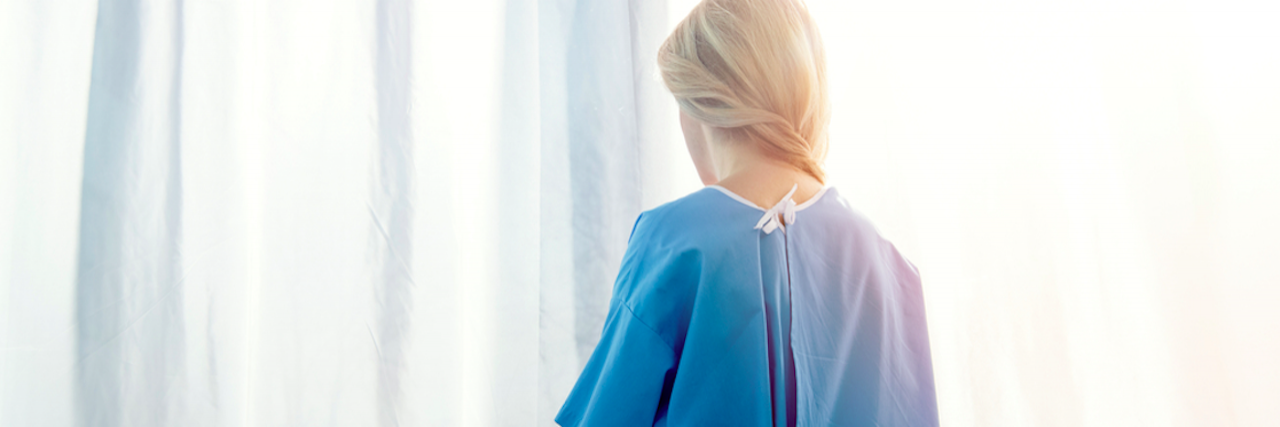I’m sitting in the waiting room at my doctor’s office, something that’s become more and more a part of my routine than I’d like to admit.
Most days I genuinely feel I’m on a Shero’s journey and I’m grateful to be alive, despite the numerous health challenges that have dogged me for the past 15 years.
Most days I go about the doctor visits, hospital admissions, tests, blood draws, and IV infusions as if it was just something I do, like brushing my teeth or taking a shower. Just part of life. My life anyway.
But as I sit here this morning, waiting for my name to be called, I’m feeling a weight heavy on my heart. I pick through the various adjectives, trying to lay claim to the one that fits what I’m feeling. And then I realize what it is.
It’s grief. Bone-crushing, heart-wrenching grief. Grief for the life I used to have before the diagnosis that changed everything.
I want to lay down my armor and sink into the sorrow. The regret. I want to cry.
But of course I don’t. And not because there are a room full of people (many dealing with their own significant health challenges), but because I rarely give myself permission to be vulnerable. Especially around my illness. I soldier on and tell myself I could have it so much worse, or that I’ll be letting others down, or that it’s self-pitying to allow the negative feelings room to breathe.
These feelings are further complicated by the messages I received as a child.
The tape that plays for me says I only receive love and attention when I’m hurt or sick. It’s not true, of course, but it was definitely the case as a child, and throughout my life I’ve let that internalized belief impact my ability to see myself as healthy and whole. There’s been a push-pull relationship with that little girl who got attention the only way she could and the woman who knows I am worth so much more than that.
And if I’m honest, there is a residual shame that surfaces when I remember those times I sought out solace, looked for love through the lens of sickness. I worked hard as I moved into midlife to rid myself of this worn out tape. Climbed Mount Kilimanjaro at 41 (after more than a year of intense training), cut back on my beloved Mike and Ike’s (and all sugar – much more difficult than climbing a mountain), began eating organic fruits and vegetables, enjoyed protein-rich shakes and probiotics.
I was 45 before the image I carried of my inner self finally felt congruent with that of my outer self. I thought I’d outrun my past, but life surely loves irony, and at the peak of my “health” I became seriously ill.
Being sick brings up all kinds of vulnerabilities for me. Shame. Doubt. Insecurity. Self-blame.
In our current culture, so much credence is placed on positive thinking and the Law of Attraction and, of course, as a coach I’ve heard my fair share of well-known experts espousing the belief that we bring to our life what we really, truly want. I’ve even been known to tout these mantras a time or two (or three). But couched within these well-meaning belief systems is a more insidious message: That if bad things happen, somehow we’ve asked for it. And that’s too close to blaming the individual for what are often experiences well beyond our control.
The reality is people get sick, bad things happen, and no amount of positive thinking or willing prosperity is going to change that. What we do have control over is how we choose to deal with what life brings to our door.
Sitting in the waiting room as I work through the grief that hits me like a tsunami, I open up to the understanding that being sick also means I’m human.
I’m human.
I’m not getting out of being in this imperfect body for the duration. And really, I wouldn’t want to. Despite the vulnerabilities that come up. Because of the vulnerabilities that come up.
I realize it isn’t about preventing life from happening – in all its glory and pain. It isn’t about thinking of ourselves as weak or damaged when life throws us a major curve ball. It’s about what we do with what we’re given – how we choose to rise above, how we choose to be fully human.
I realize it’s no better to see the glass as half full than it is to see it as half empty. The reality is that it’s both. The wisdom comes in seeing both sides, and becoming empowered to deal with the whole glass effectively.
And with that understanding, I free the tears that have been aching to be released. I free myself.

